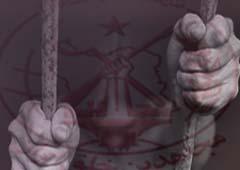MKO lacks the least political support among the Iranian people and opposition
This September, Mojahedin Khalq Organization (MKO, MEK, PMOI, NCR, NLA) commemorates 48th anniversary of its formation. Now on the list of designated terrorist organizations, there is no
As an opposition lasting for nearly half a century in Iranian temporary history, MKO is known to have had the most destructive impact on other campaigning freedom-seeking and ideological groups. In contrast to genuine sincerity and righteous causes of the early founders of the organization, as many believe, the subsequent unsavory assumption of power as the leader by Massoud Rajavi actually led the organization to a different path of deviation that so far has challenged it. It does not mean that the early founders like Muhammad Hanifnejad were totally free from mistakes and errors in decision makings that were somehow a natural impact of other active political, ideological and mainly Marxist groups’ activities, but Rajavi’s persistence to walk on a more tortuous path of mistakes led many to doubt the honesty and veracity of the early founders in their claimed campaign.
Benefiting a wide range of public support for its ideological and religious believes MKO was holding at the beginning, it did not take long, only a decade later, for the group to be totally divested of majority of its publically reputed figures who were superseded by pro-leftists. In fact, MKO has failed to remain an un-diverted group and has often been realigning itself with leftist ideologies and has undergone a thorough change both in its membership make up and political interaction with the world outside. Now nearly after five decades of its formation, MKO is facing strong opposition from a variety of other opposition groups that are drawing firm lines of demarcation between genuine and sham ideological, political and strategic policies practiced by MKO and themselves. Here are some examples of these oppositions’ perception of MKO.
– A front of opposition believes that the formation of MKO was engineered by under-the-curtain hands to carry through imperialist, freemason and capitalist ends and to confront genuine Islamic movements. Based on questionable, historical analyses and evidences, this front argues that the formation of MKO followed a tactic of forming a trend at the expense of Islamic movements but at the service of imperialism interests.
– There are others who are of the opinion that MKO was principally a devoted Islamic group but the strong impact of Marxist movements on Iranian campaigning intelligentsia at the time impelled the leaders to nest fallacies in reasoning to make impetuous decisions. These seriously made miscalculations are known to be the root of the consequent organizational and eclectic deviations lasted so far.
– Another group believes that surviving intellectuals of the early Mojahedin like Taqi Shahram and Bahram Aram, who had concealed their Marxist inclination as they joined the organization, were the subset to lead the organization to a full derailment. They are said to have established close collaboration with SAVAK, Pahlavi’s Intelligence Agency, and CIA to deflect the organization from its main path by open declaration of conversion to Marxism when the top leaders were arrested and executed.
– A fourth group observes that transformation of MKO into a deviated terrorist cult is the result of Massoud Rajavi’s hegemonic and ideological leadership. Rajavi’s plotted ideological revolution was in itself a result of the organization’s failures during 1981-1985 and a process that turned to be the major cause behind all deviations and failures of organization.
– The end of the bipolar order is generally associated with the collapse of the USSR that had its great impact on revolutionary Marxism. As a result, majority of left-oriented groups building their struggle on revolutionary and violent underground militarism encountered shocking failed strategies. The claiming revolutionary MKO was not an exception; compelled to undergo a change, MKO is presumed a pro-democratic, non-violent group with no actual reformation of its old infrastructure.
– And a last group of commentators conclude that MKO is considered a good case for historical studies concerning idealist, revolutionary and militant groups turning into non-democratic cults acting under a pro-democratic guise.
Frankly speaking, no campaigning group can be found in Iranian contemporary history so controversial as MKO. The group’s blind assassinations and bloody terrorist operations under a false flag of freedom and democracy repelled Iranian people and made MKO disappointed of availing itself of the determinative public element inside the country to face absolute public rejection. The supporters of a once claiming revolutionary group at the moment are neither the internal or the external oppositions but state-sponsored warmonger Western parties and a few retired and former Western personalities in need of MKO’s money.
